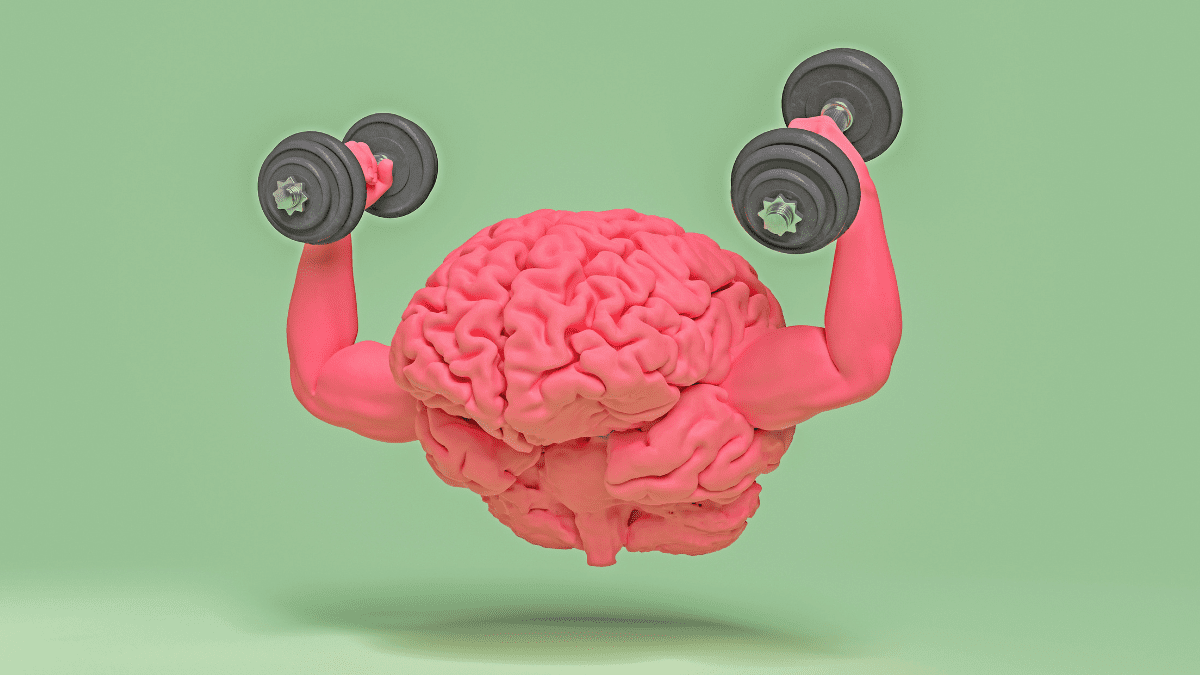Mindfulness in Music: Tap Into the Magic of Sound
Mindfulness in music is the secret to deep relaxation and mental clarity. Feel every note, escape stress, and tap into the magic of sound like never before!

In This Article
- Mindfulness in Music: How Can Sound Transform Your Mind?
- What Is Mindfulness in Music?
- The Benefits of Practicing Mindfulness in Music
- How to Practice Mindfulness in Music Daily
- The Connection Between Mindfulness in Music and Spiritual Growth
- The Transformative Power of Mindfulness in Music
- Mindfulness in Music — FAQ
Mindfulness in Music: How Can Sound Transform Your Mind?
Mindfulness in music is more than just listening. It is about being fully present with sound, feeling every note, and allowing it to guide your awareness. Music has the power to shift emotions, calm the mind, and create a deep sense of connection. But how often do we truly listen?
Most people hear music passively. They use it as background noise while working or scrolling through their phones. However, mindful listening can transform your relationship with sound. It helps reduce stress, sharpen focus, and even enhance creativity. Science shows that deep listening activates the brain in ways that improve emotional regulation and mental clarity.
When practiced with intention, music becomes a tool for healing and self-discovery. Different rhythms and tones affect brain waves, influencing relaxation or energy levels. The key is to engage fully, without distraction, and let the sound guide your awareness.
Just like mindful eating can enhance your connection with food, mindful listening deepens your experience with sound. If you are interested in bringing mindfulness into other areas of your life, explore Mindful Eating: Benefits That Will Change Your Life Today to discover how awareness transforms your daily habits.
Are you ready to unlock the power of sound? Let’s dive into the world of mindfulness in music and explore its magic.
What Is Mindfulness in Music?
Mindfulness in music is the art of listening with full awareness. It means engaging deeply with sound, free from distractions or wandering thoughts. Every note, rhythm, and vibration becomes an anchor for presence.
Music has always been a tool for emotional expression. It can calm the mind, energize the body, and even heal the soul. But in today’s fast-paced world, people rarely listen with intention. Instead, they use music as background noise. Mindful listening shifts this habit, turning sound into a powerful practice for mental clarity and relaxation.
How Does Mindful Listening Work?
Mindful listening involves tuning into music with full attention. It is about experiencing each note without judgment. This practice encourages awareness of melodies, harmonies, and even silence between sounds.
Breathing techniques can enhance the experience. Taking slow, deep breaths while listening helps synchronize the body with the rhythm. This creates a meditative state, reducing stress and promoting inner peace.
Why Does Mindfulness in Music Improve Mental Well-Being?
Listening with awareness activates multiple brain regions. Studies show that music can lower cortisol levels and boost dopamine production, reducing anxiety and enhancing mood. Slow, soothing melodies calm the nervous system, while uplifting rhythms increase energy and motivation.
The power of mindful music goes beyond relaxation. It strengthens focus, improves emotional resilience, and even enhances memory. Musicians who practice deep listening report heightened creativity and a stronger connection to their craft.
What Are the Key Elements of Mindful Music Practice?
To practice mindfulness in music, set an intention before listening. Choose a quiet space, eliminate distractions, and focus entirely on the sound. Close your eyes to heighten your sense of hearing. Notice how the music affects your breath, emotions, and body sensations.
Different genres evoke different responses. Classical music often promotes relaxation, while nature sounds help reduce stress. Drumming rhythms can enhance energy, and chanting or mantras support meditation. Experimenting with various styles helps find what resonates best.
Can Mindfulness in Music Be Practiced Anywhere?
Mindful music listening is not limited to meditation sessions. It can be practiced during daily activities. Listening while walking, driving, or even cooking can turn routine moments into mindful experiences. The key is staying present and fully engaged with the sound.
Music becomes more than entertainment. It transforms into a tool for awareness, emotional healing, and self-discovery. By practicing mindfulness in music, anyone can experience its deep and lasting benefits.

The Benefits of Practicing Mindfulness in Music
Mindfulness in music offers profound benefits. By fully engaging with sound, individuals can enhance mental, emotional, and physical well-being. This practice transforms passive listening into an active, therapeutic experience.
How Does Mindfulness in Music Reduce Stress?
Listening to music mindfully can significantly lower stress levels. Focusing on melodies and rhythms diverts attention from daily worries. This immersion promotes relaxation and reduces anxiety. Studies have shown that music, especially calming genres, can decrease cortisol levels, the body’s primary stress hormone. This natural reduction leads to a calmer mind and improved mood.
Can Mindful Music Listening Enhance Emotional Well-Being?
Yes, it can. Engaging deeply with music allows individuals to process and express emotions. This practice can lead to greater emotional clarity and resilience. Music evokes various emotions, and mindful listening helps in acknowledging and understanding these feelings. This emotional exploration fosters self-awareness and empathy, contributing to overall emotional health.
Does Practicing Mindfulness in Music Improve Cognitive Functions?
Absolutely. Mindful engagement with music stimulates multiple areas of the brain. This activation can enhance memory, attention, and problem-solving skills. Regular practice has been linked to improved cognitive performance and creativity. By concentrating on musical elements, individuals train their brains to focus better, which can translate to other tasks requiring attention and precision.
How Does Mindfulness in Music Affect Physical Health?
The benefits extend beyond mental and emotional health. Mindful music listening can positively impact physical well-being. It can lower blood pressure, improve sleep quality, and boost immune function. The relaxation response triggered by soothing music can lead to reduced muscle tension and overall physical relaxation. This holistic effect contributes to a healthier lifestyle.
Can Mindfulness in Music Enhance Social Connections?
Indeed, it can. Sharing musical experiences mindfully can strengthen bonds and foster a sense of community. Group activities like kirtan (call-and-response chanting) or drum circles encourage collective participation and connection. These shared experiences promote feelings of belonging and improve social well-being. Engaging in music together can break down barriers and build empathy among participants.
Incorporating mindfulness in music into daily life is accessible and rewarding. Whether through attentive listening, playing an instrument, or participating in group musical activities, this practice offers numerous benefits. It enriches the human experience by connecting mind, body, and spirit through the universal language of music.
How to Practice Mindfulness in Music Daily
Practicing mindfulness in music can transform the way you experience sound. It deepens awareness, enhances relaxation, and strengthens emotional connection. By engaging fully with music, you create a powerful tool for inner peace and mental clarity.
How Can You Set an Intention for Mindful Listening?
Mindful listening starts with intention. Before pressing play, take a moment to set a purpose. Are you using music for relaxation, focus, or emotional release? Choosing a clear intention allows you to connect more deeply with the sound.
Find a quiet space, free from distractions. Close your eyes and take a few deep breaths. As the music begins, immerse yourself in each note, rhythm, and vibration. Let go of background thoughts and fully absorb the experience.
What Are the Best Techniques for Practicing Mindfulness in Music?
Several techniques can enhance mindful listening:
- Focused Attention: Pay attention to the layers of the music. Notice the melody, harmony, and instruments. Observe how the sounds blend together.
- Breath Awareness: Sync your breathing with the rhythm of the music. Inhale and exhale in tune with the tempo. This creates a calming, meditative effect.
- Body Scanning: Tune into physical sensations. Notice how the music affects your heart rate, muscle tension, or energy levels. This builds a deeper connection between sound and body.
Can Mindfulness in Music Be Part of Your Daily Routine?
Yes, mindful listening can be integrated into daily life:
- Morning Rituals: Start the day with calming music to set a peaceful tone.
- Work Breaks: Use instrumental music for short mindful pauses during busy days.
- Exercise Sessions: Match music with movement to enhance motivation and flow.
- Evening Wind-Down: Play soft melodies to promote relaxation before sleep.
By making mindfulness in music a habit, you turn everyday listening into a meditative experience.
How Does Mindful Music Listening Support Better Sleep?
Listening to soothing sounds before bed signals the brain to relax. Slow, rhythmic music can lower cortisol levels and prepare the body for sleep. Studies show that relaxing music improves sleep quality by calming the nervous system. Choosing gentle, instrumental music or nature sounds can create a tranquil bedtime routine.
Can Technology Enhance Your Mindful Listening Practice?
Modern tools make it easier to practice mindfulness in music:
- Meditation Apps: Many apps provide guided music meditations for stress relief.
- Curated Playlists: Creating playlists for different moods can enhance the mindful listening experience.
- Binaural Beats: These special sound frequencies help shift brainwave activity, promoting relaxation and focus.
When practiced with intention, music becomes more than entertainment. It turns into a tool for mindfulness, relaxation, and emotional healing.
For more insights on how mindful listening benefits mental health, read this expert guide on music and well-being.

The Connection Between Mindfulness in Music and Spiritual Growth
Music has long been a gateway to higher consciousness. Many cultures use sound as a tool for spiritual awakening. When combined with mindfulness, music deepens self-awareness and strengthens the connection to something greater.
How Does Mindfulness in Music Create a Meditative State?
Mindful listening allows the mind to slow down. By focusing on sound, the brain shifts into a relaxed state. This is similar to meditation. The steady rhythms and harmonic vibrations help quiet mental chatter.
Certain types of music, like chants and mantras, induce a deep sense of presence. Repetitive sounds guide the mind into stillness. This state enhances inner peace, allowing for greater spiritual clarity.
Can Sound Frequencies Influence Spiritual Awareness?
Yes, specific sound frequencies have a powerful effect on consciousness. Ancient traditions have used sound healing for centuries. Tibetan singing bowls, gongs, and solfeggio frequencies are believed to raise vibrational energy.
Research suggests that listening to certain frequencies can activate different brainwave states. Theta waves, for example, promote deep meditation. Delta waves encourage profound rest and healing. Engaging with these sounds through mindful listening can enhance spiritual awareness.
What Role Does Music Play in Sacred Practices?
Many spiritual traditions integrate music into rituals. Monks chant to deepen concentration. Indigenous cultures use drumming to enter trance states. Gospel choirs raise energy through powerful harmonies.
These practices show how music strengthens spiritual connection. When combined with mindfulness, sound becomes a tool for transformation. It opens the heart, quiets the ego, and deepens the sense of oneness with the universe.
How Can You Use Mindfulness in Music for Spiritual Growth?
Bringing mindfulness to music can elevate spiritual experiences. Here are a few ways to integrate it into your practice:
- Chanting or humming: Vibrations resonate within the body, enhancing presence.
- Listening to sacred music: Mantras, hymns, or instrumental soundscapes can raise spiritual awareness.
- Creating intentional soundscapes: Playing an instrument mindfully or singing with awareness deepens connection to the present moment.
- Using nature sounds: Water, wind, and bird songs create a peaceful backdrop for meditation.
When practiced consistently, mindfulness in music becomes a path to deeper understanding. It bridges the gap between mind and spirit.
The Transformative Power of Mindfulness in Music
Mindfulness in music is more than just listening. It is about being fully present with sound, allowing it to guide your thoughts and emotions. When practiced intentionally, it can reduce stress, sharpen focus, and deepen spiritual awareness.
Music has the power to heal. It calms the nervous system, balances emotions, and enhances creativity. By tuning in with awareness, every note becomes more meaningful. The experience shifts from passive hearing to active connection.
This practice is accessible to everyone. Whether through deep listening, chanting, or playing an instrument, mindfulness in music can transform daily life. It turns ordinary moments into meditative experiences. The more you engage, the more benefits you unlock.
Spiritual traditions have long used sound for healing and awakening. Modern science now confirms its profound impact on mental and physical well-being. Combining mindfulness with music creates a bridge between ancient wisdom and modern understanding.
Start small. Choose a song, close your eyes, and listen with full attention. Feel the rhythm, notice the melody, and let the sound move through you. Over time, this practice becomes a powerful tool for self-discovery and peace.
Mindfulness in music is not just about sound—it is about presence. It teaches you to slow down, to feel deeply, and to connect with something greater. The next time you press play, listen with intention. The music will speak, and your mind will awaken.
Mindfulness in Music — FAQ
How can mindfulness in music improve mental health?
Mindfulness in music helps reduce stress, lower anxiety, and improve focus. By actively listening to sound with full awareness, the mind becomes calmer, emotions become more balanced, and overall well-being improves. Studies show that mindful music listening can also enhance cognitive function and memory.
What type of music is best for practicing mindfulness in music?
The best music for mindfulness depends on personal preference. However, slow, calming music, instrumental pieces, nature sounds, and chanting are commonly used. Tibetan singing bowls, classical compositions, and binaural beats are also effective in promoting deep relaxation and mental clarity.
How can I incorporate mindfulness in music into my daily routine?
Start by listening to music with full attention, free from distractions. Focus on each note, rhythm, and melody. Use deep breathing to enhance the experience. You can also integrate mindful music into meditation, exercise, or bedtime routines to improve relaxation and awareness.







